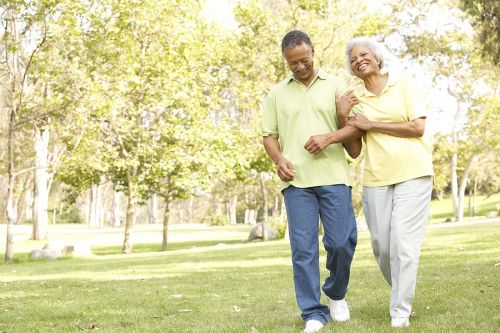Menu
Principal Office, Houston Texas Remote Services, Texas and Florida
(by appointment only)
713.568.8600
(by appointment only)
713.568.8600 | 904.425.9046


One out of five senior falls causes a serious injury -- such as a broken bone or head trauma -- according to a Centers for Disease Control and Prevention report. Injuries of this sort can make life difficult for an older person to do everyday activities or live on their own. Half of the time, when a senior falls, it goes unreported to their doctor, and the person is likely to become fearful, cutting back on their activities. Not reporting a fall creates a vicious cycle of more fall risk. Fearfulness leads to less activity, making a senior weaker, which increases their chance of falling.
The risk of falls can be reduced. Right At Home provides ten tips to reduce the risk of a senior falls, and these are summarized below. These tips are science-based, and seniors should try to implement them in their daily lives.
 Talk to Your Doctor
Talk to Your DoctorExisting health conditions such as hearing and vision loss, arthritis, osteoporosis, or cognition problems can increase the risk of falls. Telling your doctor about these conditions might help her advise you how to reduce the risk of falling. Also, though, reporting falls to your doctor might help uncover any of these contributing conditions. After all, falling once more often than not leads to subsequent falls.

Staying active can lead to endurance building, muscle strengthening, and increased flexibility and improved balance. All of these areas can help reduce the risk of falling. And activity need not be formal at gyms, recreation centers, or senior centers. Gardening, house cleaning, neighborhood walks, and even dancing about the house are all ways to stay active.
The vestibular system of the inner ear is crucial to your sense of balance, and when it dysfunctions, the likelihood of you falling increases. Balance classes including activities like tai chi and gentle yoga can help improve balance. Surprisingly, balance can also be improved merely be improving your shoe fit.
De-cluttering is not only about having a clean space or the fad seen by Marie Kondo's book; removing clutter can also greatly improve your risk of falling. (My own mother fell when she slipped on a magazine on the floor.) Improved lighting in the home also helps so you can better see hazards that might cause tripping. Of course, stair rails and tub bars can be of great assistance in helping prevent falls.
Mixing medications can lead to dangerous side effects that could cause dizziness or drowsiness. Although you might see different doctors for different reasons, it is important that your primary doctor know all of the medications you take and review them periodically.
Our senses are key to everything. And if you have unaddressed issues with yours, your risk of falling will likely increase. In addition to regular check-ups, be sure you use any devices meant to improve these senses such as hearing aids or eyeglasses.
Vitamins and minerals we get through our diets can significantly impact our fitness and health, and when those are better, our risks of falling is often lower. And as we age, our needs in those areas may change. Talk to your doctor or nutritionist about what's right for you.
Lose the ego and use your mobility devices if needed. If you aren't sure how best to use things like canes or walkers, seek out a physical therapist for a lesson. And remember: there's nothing wrong with a snazzy cane. (When I used a cane after each hip surgery, one had a leopard print; this one was sparkly gold.)
Being distracted often leads to falls. Whether texting, chatting on the phone, or paying more attention to what is on the television, if you think about something else while navigating stairs, furniture, or even a sidewalk, this can lead to slips and falls.
Caregiver groups can help assess your home and help reduce the risk of falls.
Following these safety tips can help reduce the risk of falling for seniors, and that can mean a better quality of life, a longer life, and more independence.
© 2025 McCreary Law Office, PLLC